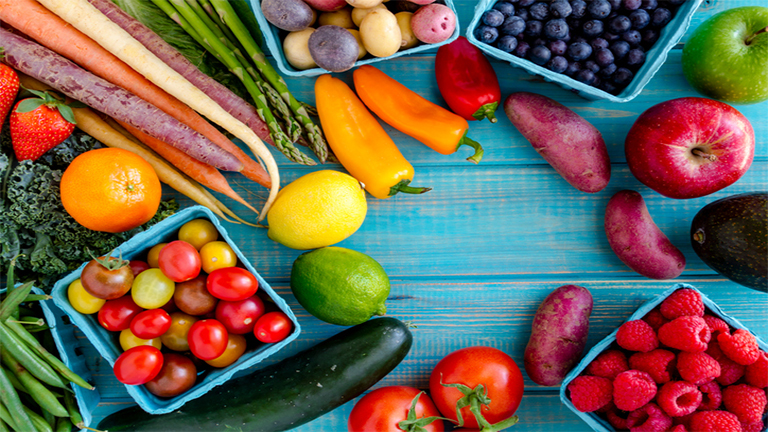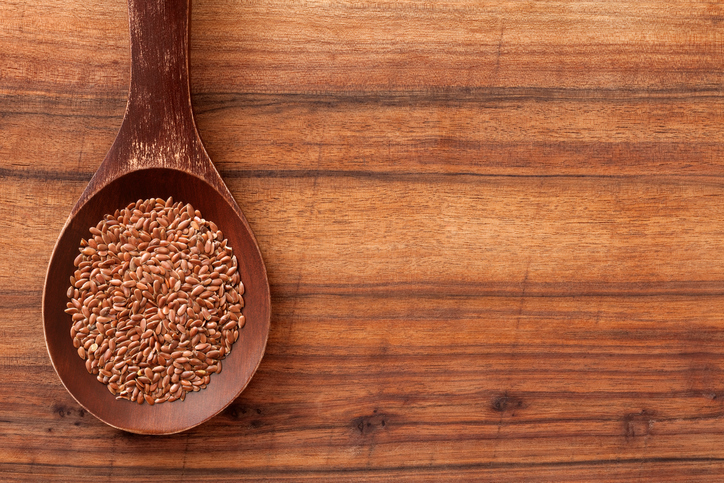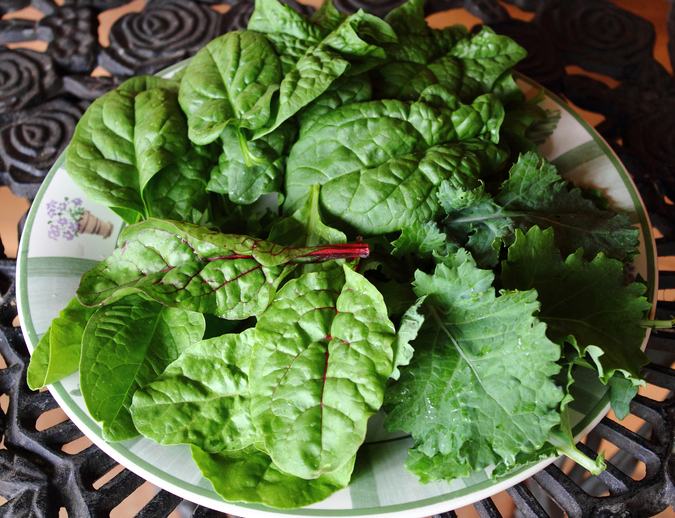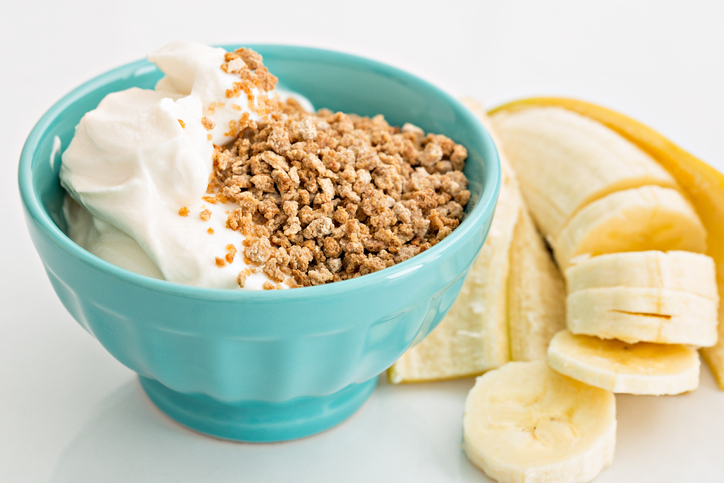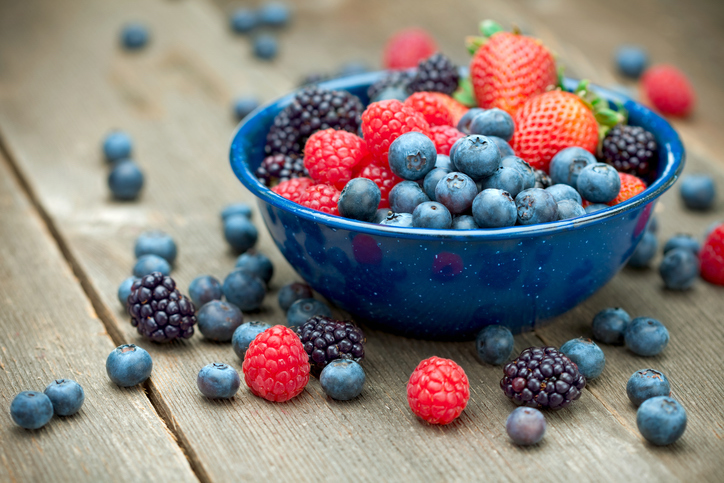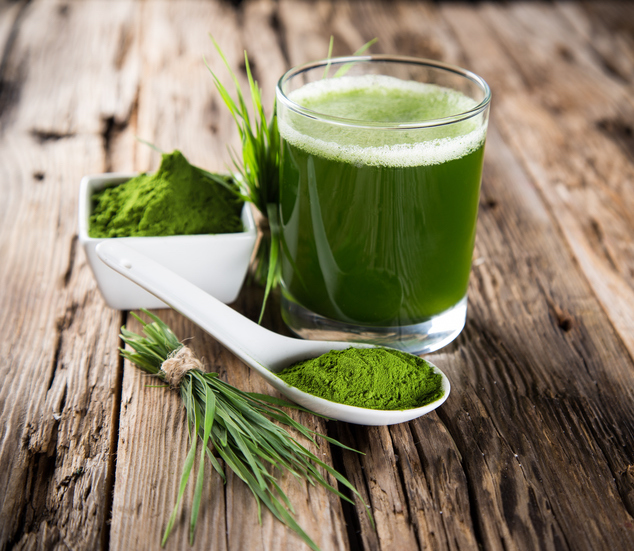This year’s World Health Day theme is depression so we have a brain food special. Whether you’re stressed, depressed, tired or nervous, leading nutritionist Jenny Tschiesche has help with 30 foods to boost your mood
Why can some foods help calm us down whilst others provide a real boost to our mood? Our gut communicates with all cells in the body, which means that disturbances in the gut can show up as disturbances in the brain.
Plus, thanks to some specific interactions between food or drink and the body an increase in neurotransmitters (brain chemicals that contribute to mood) responsible for both positive and negative emotions can result. To find out which foods could help you beat stress, concentrate more, sleep better, relax more and reduce anxiety read on….
If you’re stressed…
Stress breaks down protein in the body which explains why people under extreme stress often lose weight. We need to ensure that each of our main meals contains some form of protein so that our intake is regular. The quality of that protein is important as is variety. Opt for grass-fed meats, organic poultry and wild fish or quality nuts and seeds (including nut and seed butters) and legumes.
Stress breaks down protein in the body which explains why people under extreme stress often lose weight
Stress triggers stress hormones which in turn, can create inflammation in the body. To reduce inflammation we should try and get a sufficient quantity of omega 3 fatty acids into our diet. Flaxseeds and chia seeds provide a vegetarian/vegan source of omega 3 fatty acids. Omega 3 can also be found in oily fish such as mackerel, salmon and sardines.
To help your body during stressful periods try to consume foods that are easier to digest such as homemade vegetable soups and broths, white fish, rice and lower sugar fruits such as berries and Granny Smith apples.
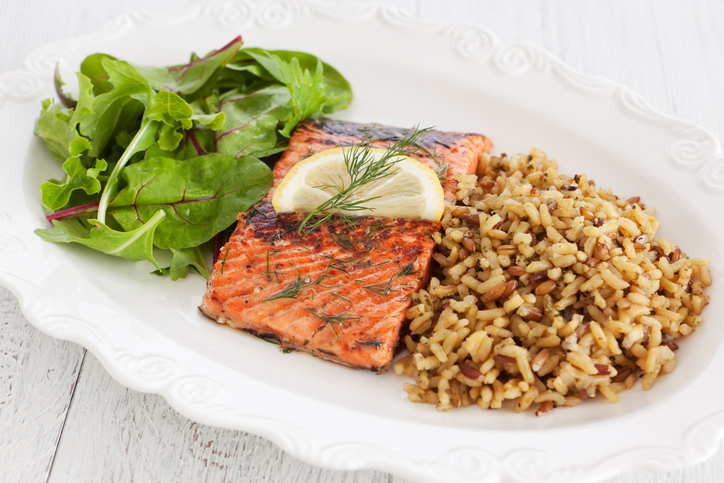
When stressed, our bodies tend to focus on dealing with the stress and not with other bodily processes. Digestion is often one of the first processes to be dropped from the priority stack. To help your body during stressful periods try to consume foods that are easier to digest such as homemade vegetable soups and broths, white fish, rice and lower sugar fruits such as berries and Granny Smith apples.
Liquorice tea can support adrenal function which is often affected when your body is under stress. Your adrenals are located just above your kidneys hence the term ‘ad’ ‘renal’ – upon your kidneys. They produce stress hormones when your body senses that they’re required. Our modern western lifestyle causes a lot to be asked of these small glands. Try adding a cup of liquorice tea to your daily routine.
Read more: 5 stress symptoms and EXACTLY how to fix them fast
If you’re moody…
Depression has been linked to low levels of folic acid. Foods rich in folic acid include green vegetables, pulses and citrus fruit. Try sautéing your green leafy vegetables in some butter or olive oil and serve with your main meal.
For some, eating spicy food triggers a sense of euphoria similar to a high
Spicy food has been shown to release endorphins, the body’s natural way of relieving pain by blocking the nerve’s ability to transmit pain signals. The neurotransmitter dopamine is also responsible for a sense of reward and pleasure. For some, eating spicy food triggers a sense of euphoria similar to a high! Be sure to include chillies in your soups, stews and curries to boost your mood.
Read more: 60 second smoothie for mood – velvety smooth
If you can’t sleep…
Green Tea contains a brain relaxing chemical called L-Theanine which encourages the production of alpha waves in the brain. These are the brain waves we produce when we are relaxed. Green tea can be consumed throughout the day and even into the evening, unlike other caffeinated drinks.
One 2013 study found that people who slept for a very short period of time overnight consumed less protein and carbohydrates than normal sleepers
Foods rich in the amino acid L-Tryptophan have been found to improve sleep because they provide the amino acid which is the precursor to both serotonin (our happy hormone) and melatonin (our sleep hormone). Foods rich in L-Tryptophan include poultry, seeds and nuts, beans as well as dairy products.
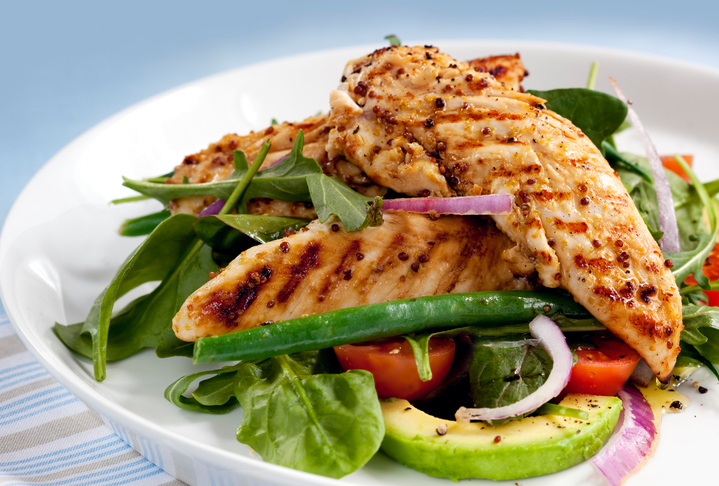
In order to sleep well, it’s important that you simply eat enough. One 2013 study found that people who slept for a very short period of time overnight consumed less relative protein and carbohydrates than normal sleepers. Aim for quality proteins and slow-energy release carbohydrates such as vegetables and fruit.
Potassium has been linked with improved sleep. Food sources of potassium include leafy greens, baked potatoes, yogurt, fish, avocados and bananas. Including these foods is a good idea to help improve your quality and length of sleep.
Read more: 13 natural sleep aids PROVEN by science
If you can’t concentrate…
Ripe bananas (those with the brown spots on the skin) are able to stimulate the production of dopamine, a brain chemical involved in increasing motivation and concentration. The browner bananas are the richer in tyrosine they are, which is the amino acid that can help create dopamine. Freeze peel and slice ripe banana in freezer bags or containers and when you want a quick and easy dessert simply whizz the banana up with avocado, frozen raspberries in a food processor. You’ll be amazed at the delicious ‘gelato-style’ dessert it makes.
Ripe bananas are able to stimulate dopamine, a brain chemical involved in increasing motivation and concentration
Another source of food that can stimulate the production of the brain chemical dopamine is seed and nut butters. Enjoy a dollop of either with wedges of freshly chopped apple as a snack or dessert.
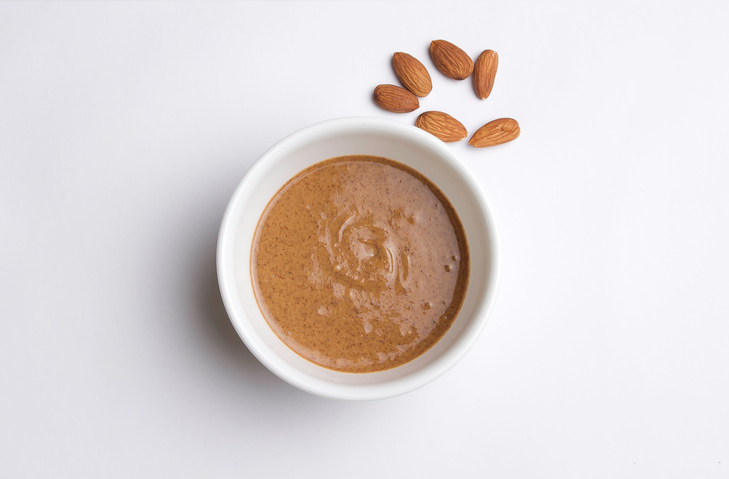
Foods that are high in antioxidants such as fruits (especially berries and tomatoes) and vegetables (especially cauliflower, cabbage and broccoli) are beneficial to concentration levels. These may help with blood flow to the brain, which will supply the brain cells with more oxygen.
Eating berries at least once a week may protect the brain from age-related memory loss according to a very large 2012 study. Blueberries and strawberries were the berries used in this study so perhaps that’s where we should be focussing our attention.
Eating berries at least once a week may protect the brain from age-related memory loss according to a very large 2012 study.
If you’re anxious…
B-Vitamins are often depleted in individuals who suffer from anxiety. Marine algaes such as spirulina and chlorella provide a wide range of B-Vitamins and can be added to your porridge, smoothies or just sprinkled over any of your main meals.
Certain teas such as valerian and chamomile can help calm you down. Valerian seems to work like a sedative on the brain so the best time to have a cup is late in the evening, for example just before bedtime. It should be brewed for between 5-10 minutes. Meanwhile, chamomile tea can be consumed throughout the day, perhaps 2 or 3 times as and when needed to reduce anxiety.
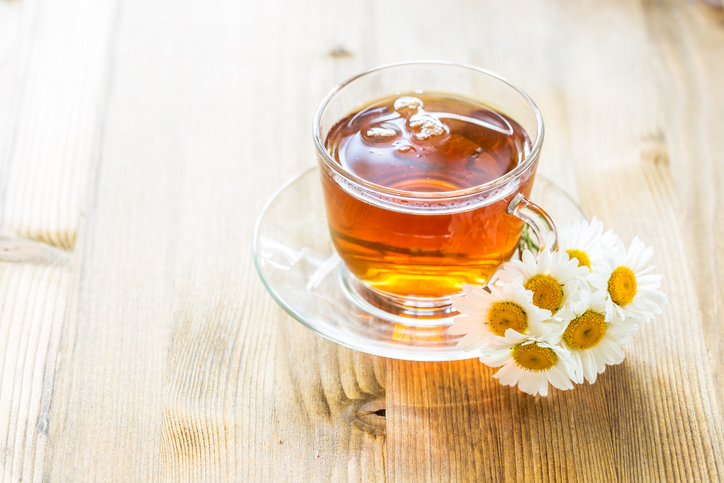
Magnesium is a calming mineral that nourishes the nervous system and helps prevent anxiety, fear, nervousness, restlessness and irritability. Magnesium is also very protective of the heart and arteries which is important if you suffer from anxiety or panic attacks. Food sources of magnesium include cacao, fish, dark green leafy vegetables, beans and lentils.
Insufficient intake of L-tryptophan, L-phenylalanine, or L-tyrosine are associated with increased symptoms of anxiety. Foods rich in these amino acids include poultry, seeds and nuts, beans, dairy products (L-Tryptophan), lentils, chickpeas, nuts, flaxseeds (L-Phenylalanine) and spirulina, eggs and fish (L-Tyrosine).
Your chance to win!
Now you’ve heard about all the foods to boost your mood, fancy winning them all? Indigo Herbs is giving away a collection of superfoods mentioned to help you on your way. Enter the giveaway here.
Jenny Tschiesche BSc(Hons) Dip(ION) FdSc BANT is one of the UK’s leading nutrition experts. She has developed a reputation for creating and presenting delicious and nutritious new recipes for audiences globally via the media, TV, radio, in person and through workshops and seminars.
Jenny is currently consultant nutritionist for Indigo Herbs, a food company that brings together cutting edge optimum nutrition and ancient herbal wisdom as tools for natural health and wellbeing. They have a broad range of products that are ever expanding and offer customers access to a global apothecary.
Read more:
What to eat for a healthy smile
Reviewed: London’s vegan-friendly hair salon
Meat-free Monday: avocado bruschetta
Spa of the week: Four Seasons Hotel Des Berges Geneva, Switzerland
Could floatation therapy help your anxiety?
Like this article? Sign up to our newsletter to get more articles like this delivered straight to your inbox.



